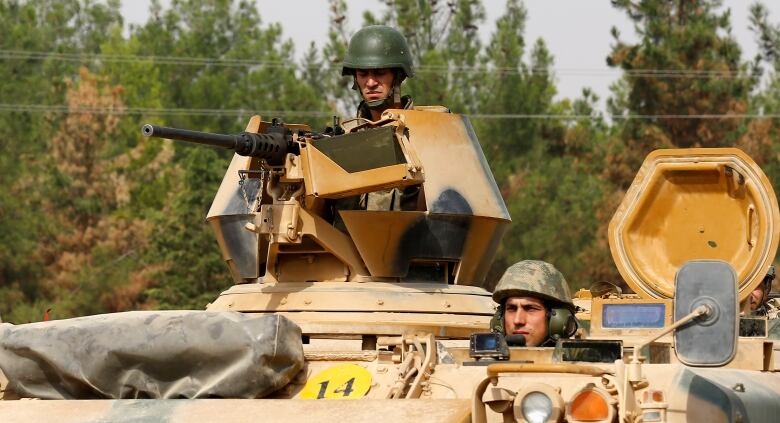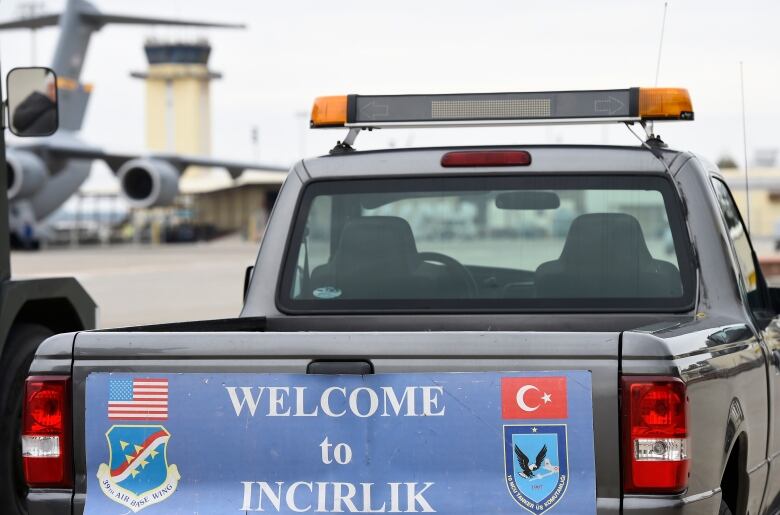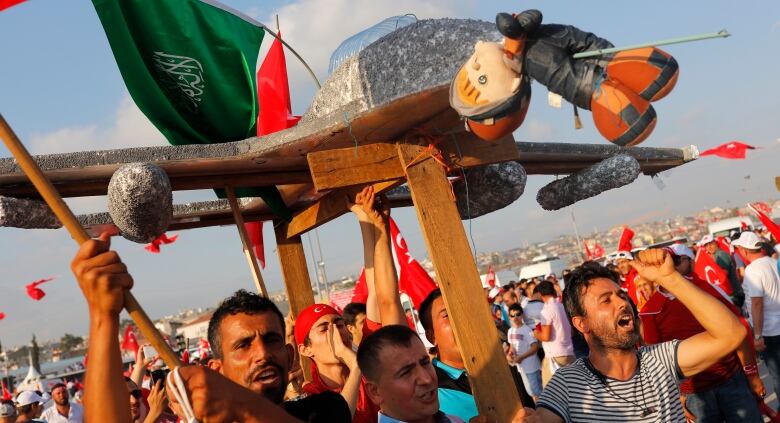Turkey's purged post-coup military has NATO allies nervous: Brian Stewart
Guardian of dozens of U.S. nukes and key defender of NATO's southern flank has seen its ranks badly depleted

Now 2 months removed from the failed coup in Turkey, PresidentRecepErdogan'srolling purges of many layers of society are putting the country's fragile democracy under extraordinary strain.
But no institution is as fractured and battered as Turkey's large military, which is a major concern for NATO allies who have long considered it one of the core strengths of the alliance.
Turkey's military is a behemoth inside NATO, the second-largest standing force after the U.S., and guardian of an estimated 90 American B61 nuclear bombs. It's also the key defender of NATO's entire southern flank, and is vital to the U.S.-led coalition fight against ISIS in Syria.

But the military is badly damaged following the failed coup of July 16. A faction of the military launched the uprising and the entire force remains very much under suspicion and investigation.
At least a third of its top officer ranks, 143 generals and admirals, were thrown into detention, and 10,000 officers of lesser rank were also arrested for suspected ties to the coup plotters. None, as yet, has been brought to trial.
The air force has beenhit the hardest. It faces a severe pilot crisis after 300 flyers, roughly half its duty roster, were purged.Such a massive shortage will be very difficult to recover from given the time it takes to train combat-ready crews.As many as five squadrons of F-16 fighters are reported to have been shut down.
Nuclear weapon storage
The air force seems to have been significantly involved in the attempted coup. This is particularly worrisome for NATO because ofthecrisisthat flared around the major southern airbase of Incirlik, which plays a vital role in supporting U.S. and allied anti-ISIS air attacks in Syria.
The base also houses NATO's largest nuclear weapons storage facility where those 90 or so B61 nukes are kept.

Gareth Jenkins, an Istanbul-based writer and analyst, warned when the crackdownbegan that it will have long-term consequences for the military.
"What we have seen ... is the start of a process which will have an impact on Turkey and its armed forces for the next 20-30 years."
Former NATO supreme commander James Stavridisis concernedthe crucial allywill become distracted.
"Unfortunately, it is likely that the military, in the wake of the coup, will be laser-focused on the internal controversy, endless investigations, and loyalty checks and simply surviving as an institution," the retired admiral said.
'A total witch hunt'
Of course, it's not just the military that's been shaken by the massive crackdown.
More than 100,000 people, including judges, mayors and school teachers, have been arrested or dismissed from work without a hearing.
Turkish opposition leaders say basic civil liberties are regularly violated.
"This is the point we have reached now," opposition leader Kemal Kilicdaroglu said recently. "A total witch hunt has been launched in many fields."
The risk now, according toAsli Aydintasbas, an Istanbul-based senior fellow ofthe European Council on Foreign Relations, is that "in its righteous anger and its attempt to clean the state, the Turkish government might destroy the frail democracy it is trying to save."
Amnesty Internationalsays many arrested military officers have been tortured and denied food for days.

The movement is reported to have possibly millions of followers in Turkey and around the world, and runs many philanthropic and educational enterprises. Over a dozen years, it also placed members deep within the Turkish bureaucracy, including police, the judiciary, intelligence agencies and the military.

Many arrests were expected after such a serious uprising involving a portion of the military, but the scale ofErdogan'ssweeps is closer to what you'd expect in a police state. What's more, as always happens in such purges, neighbours turn on each other, creating a self-perpetuating fog of fear.
Even a few government ministers have hinted lately that too many innocent people may have been victimized. The government says 32,000 people have been jailed, with prisons so crowded pre-coup inmates are being released early to make room for the overflow.
- Turkey building more courts to deal with mass arrests
- Who is Fethullah Gulen?
- Turkey asks U.S. to arrest alleged coup plotter
Gulenist plottersare by no means the only targets, Aydintasbas says, with the net widening to include 200 journalists andErdogan'spolitical critics.
"Liberal dissidents and Kurds have also suffered in the crackdown,"she wrote."Authorities have arrested dozens of Kurdish activists, politicians and mayors and dismissed 11,500 teachers belonging to a left-wing union."
Yes, the attempted coup was an extremely serious threat to Turkey's government that required a strong response. Still, no one knows how much further Erdogan will push this staggering social upheaval in an already deeply troubled nation.
And that's a nightmare for Turkey's allies.












_(720p).jpg)


 OFFICIAL HD MUSIC VIDEO.jpg)
.jpg)



























































































